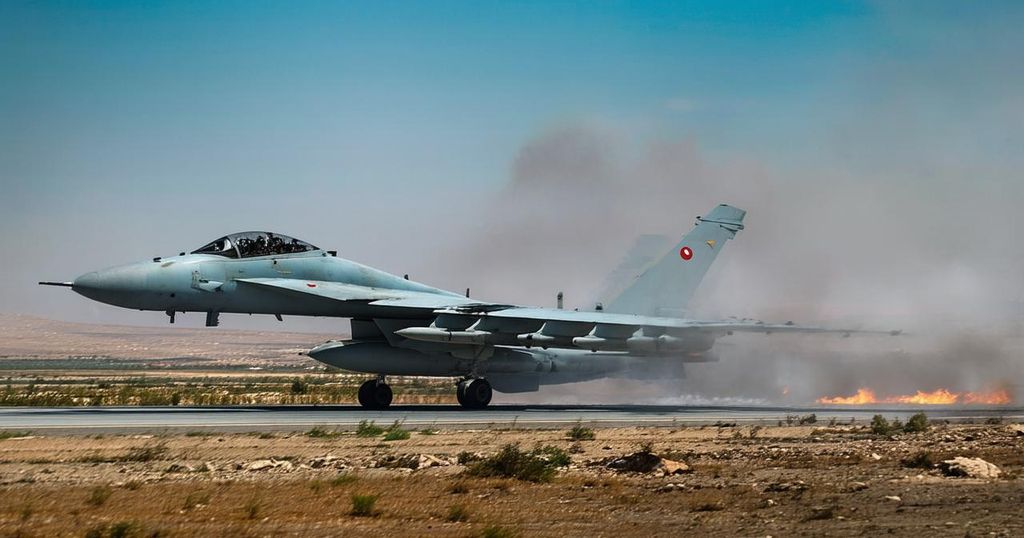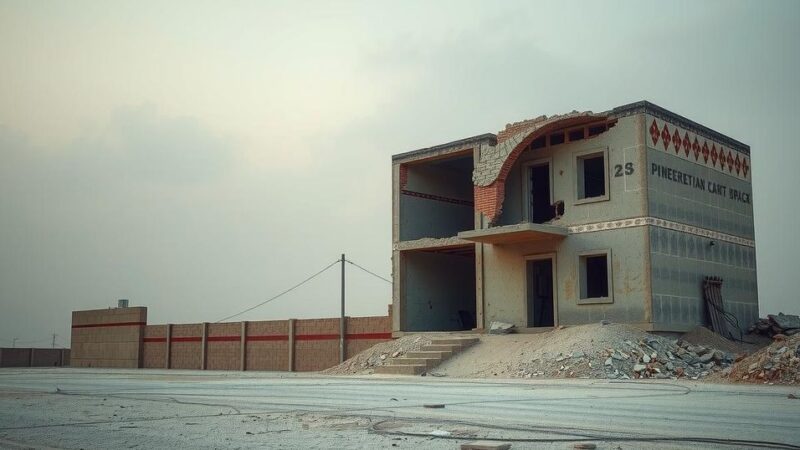Turkey executed retaliatory strikes in Kurdish-controlled Iraq and Syria, killing 12 individuals following an attack on a defense firm in Ankara attributed to the PKK. The Syrian Democratic Forces (SDF) condemned the strikes, stressing civilian casualties and ongoing readiness for defense amidst complex relations with the U.S. and Turkish government.
Late on Wednesday, Turkey conducted airstrikes in areas of Syria and Iraq inhabited by Kurdish forces in response to a deadly assault on a state-affiliated defense manufacturing facility in Ankara. This attack reportedly involved at least two assailants who killed four individuals and injured over a dozen others. The Turkish government has attributed this attack to the Kurdistan Workers’ Party (PKK), which has been engaged in an extended insurgency against the Turkish state. Turkish President Recep Tayyip Erdogan characterized the Ankara assault as a “nefarious” act against the headquarters of Turkish Aerospace Industries located just outside the capital city. Confirmed footage reveals significant damage to the electrical infrastructure in regions such as Kobani and Qamishli, which serve as administrative centers for the Kurdish-majority forces in northeast Syria. The Syrian Democratic Forces (SDF), who have been crucial U.S. allies in the fight against ISIS, reported on Thursday that the Turkish air and artillery strikes resulted in the deaths of twelve individuals, including two children, and wounded over twenty-five others. The Turkish Defense Ministry claimed to have targeted 47 locations it deemed as “terrorist targets” within Syria and Iraq. General Mazlum Abdi, the commander of the SDF, condemned the Turkish airstrikes as indiscriminate and harmful to civilian infrastructure, including healthcare facilities in northeast Syria. He reaffirmed the SDF’s commitment to dialogue but emphasized their readiness to defend their people and territory, stating, “We have repeatedly shown our readiness for dialogue. Meanwhile, we affirm that our forces are ready to defend our people and land.” Approximately 900 U.S. forces remain stationed in the region as part of an international coalition against ISIS, with the SDF serving as the primary ally on the ground. To date, neither the U.S. Department of Defense nor Central Command has issued comments regarding the recent attack in Ankara or Turkey’s subsequent military actions. The Turkish government views the U.S.-supported SDF and its affiliate, the YPG, as linked to the PKK, which the U.S. and Turkey have long classified as a terrorist organization. The PKK operates from the Qandil mountains in northern Iraq, a frequent target of Turkish military operations. While no group has taken responsibility for the Ankara attack, it occurred amidst renewed negotiations between the Turkish government and the imprisoned PKK leader, Abdullah Ocalan, who has been held for over twenty years. On Thursday, Ocalan’s nephew, Omer, a member of the Turkish parliament, relayed a message suggesting Ocalan’s willingness to pursue an end to the protracted violence that has persisted since the mid-1980s. The leader of the Nationalist Movement Party, an ally of Erdogan, extended an invitation for Ocalan to address parliament and indicated that Ocalan could be released on parole provided the PKK disbanded.
The events surrounding the Turkish airstrikes and the attack in Ankara are rooted in a longstanding conflict between the Turkish government and the PKK, a group that has sought autonomy for the Kurdish population in Turkey. The PKK has been involved in a violent insurgency against the Turkish state for decades, leading to significant loss of life and heightened tensions in the region. The Turkish government considers the PKK and its affiliates, such as the YPG, to be terrorist organizations. In contrast, the Kurdish forces have served as crucial allies for the United States in its operations against ISIS in Syria, complicating the geopolitical landscape in the region. The recent attacks and military responses indicate a potential escalation in the ongoing conflict, particularly as peace negotiations have been intermittently attempted over the years.
In summary, the recent Turkish airstrikes in response to the attack on a defense facility in Ankara mark a significant escalation in the conflict involving Kurdish forces in Syria and Iraq. The SDF reported numerous casualties and condemned the strikes as indiscriminate, highlighting the impact on civilians and infrastructure. The dual pressures of ongoing military actions and potential political dialogues with PKK leadership could shape the future of stability in the region amid the continued presence of U.S. forces.
Original Source: www.cbsnews.com






